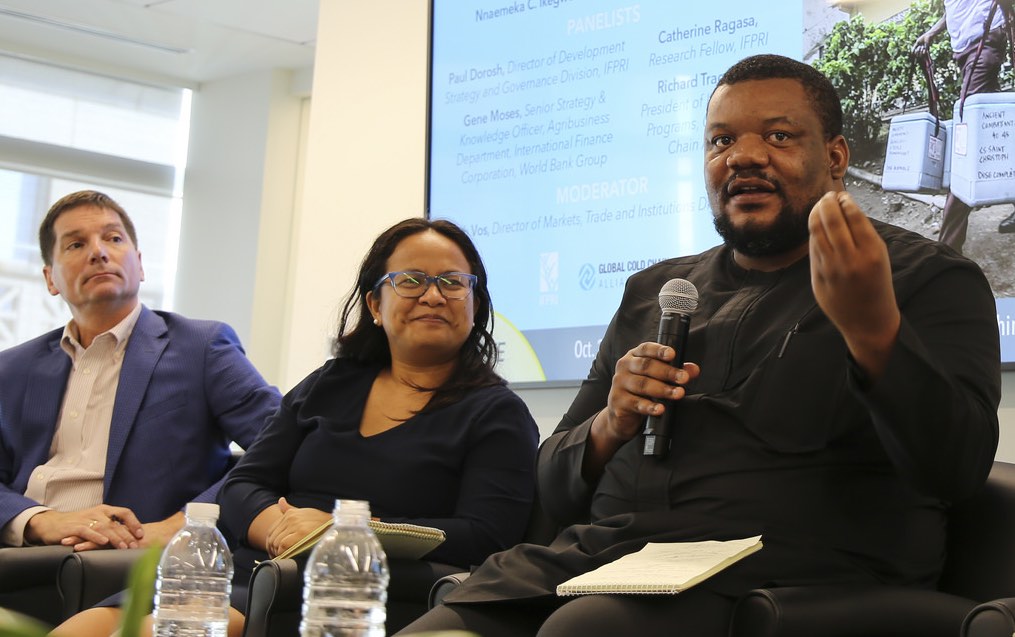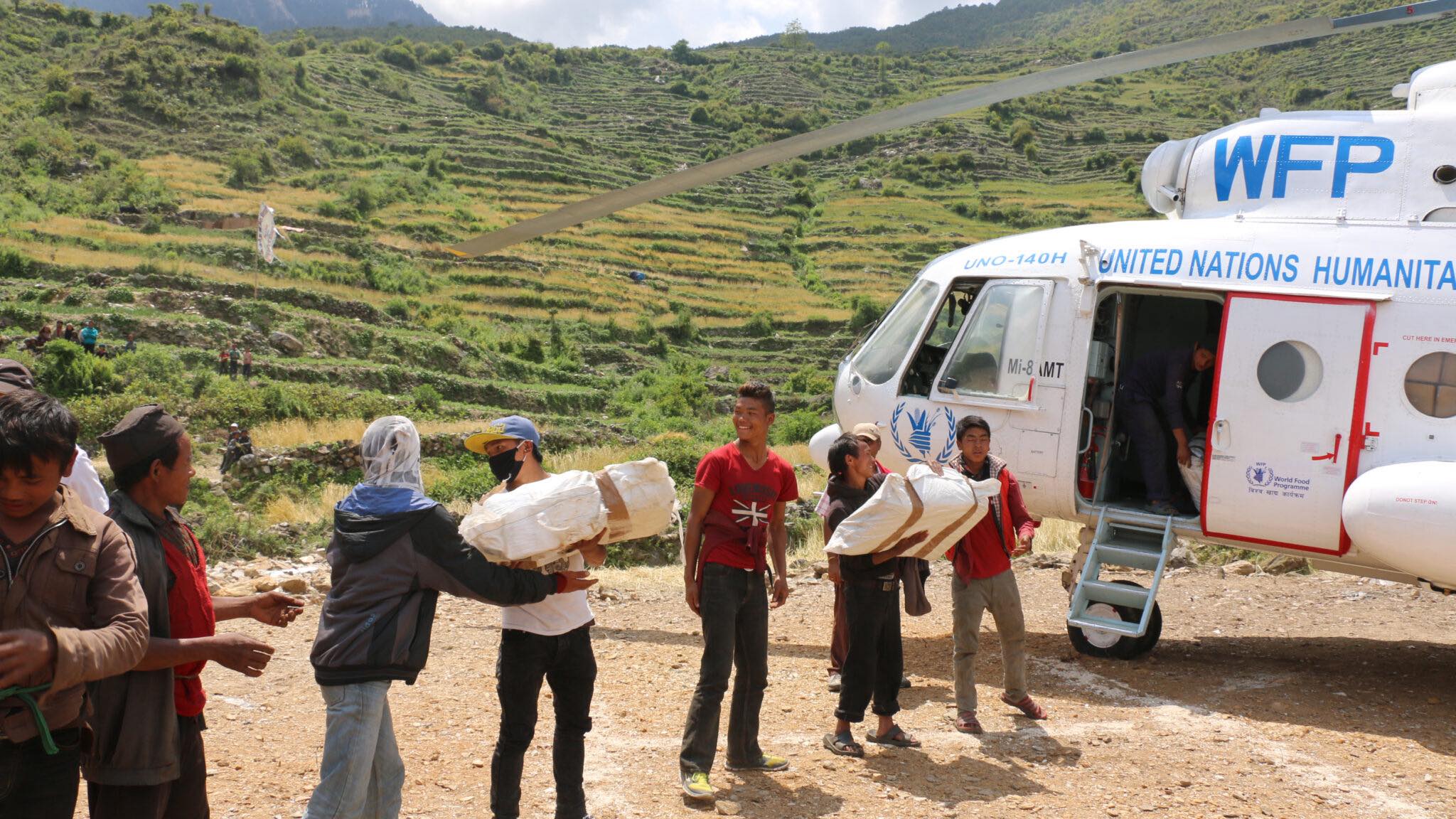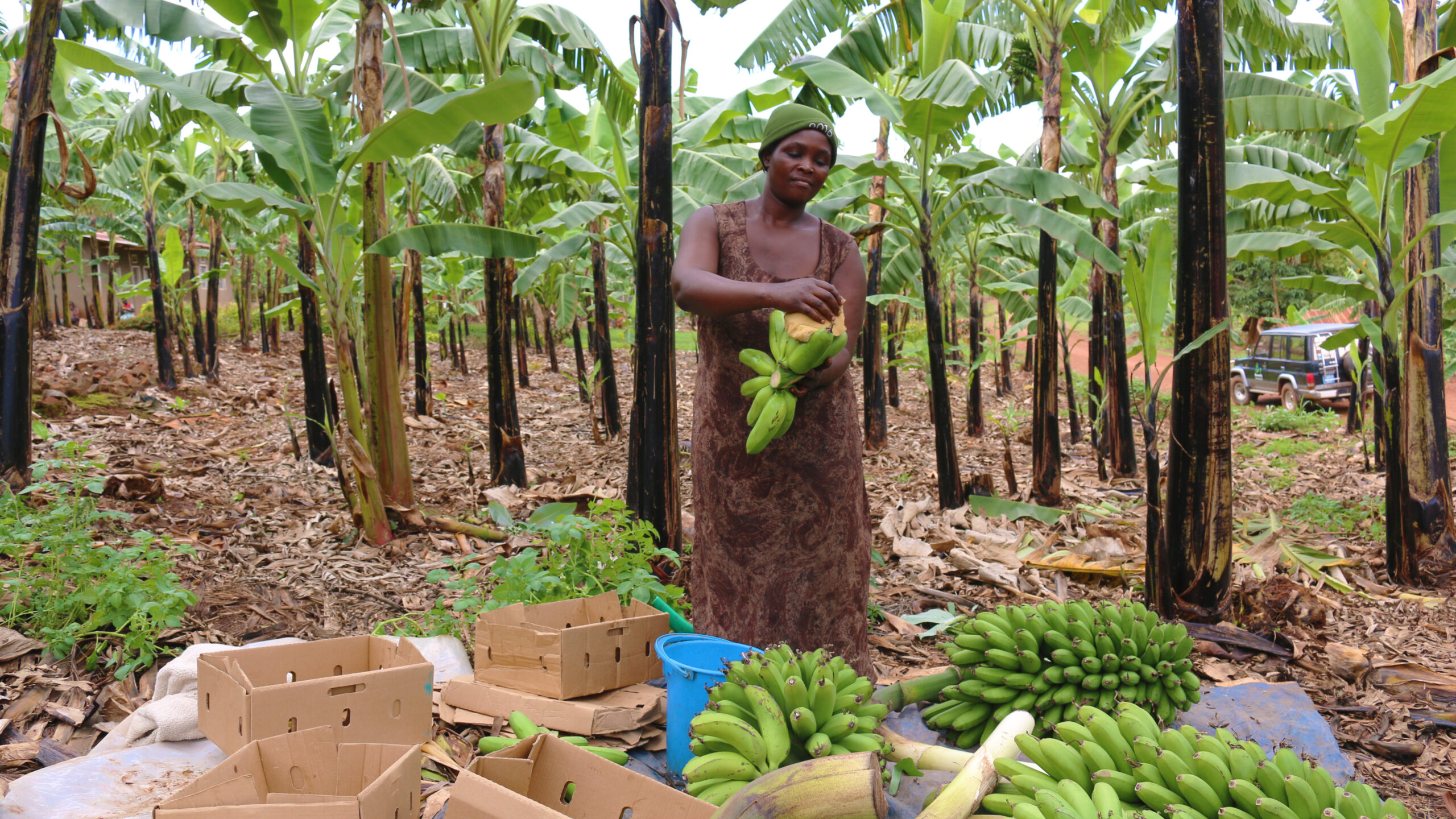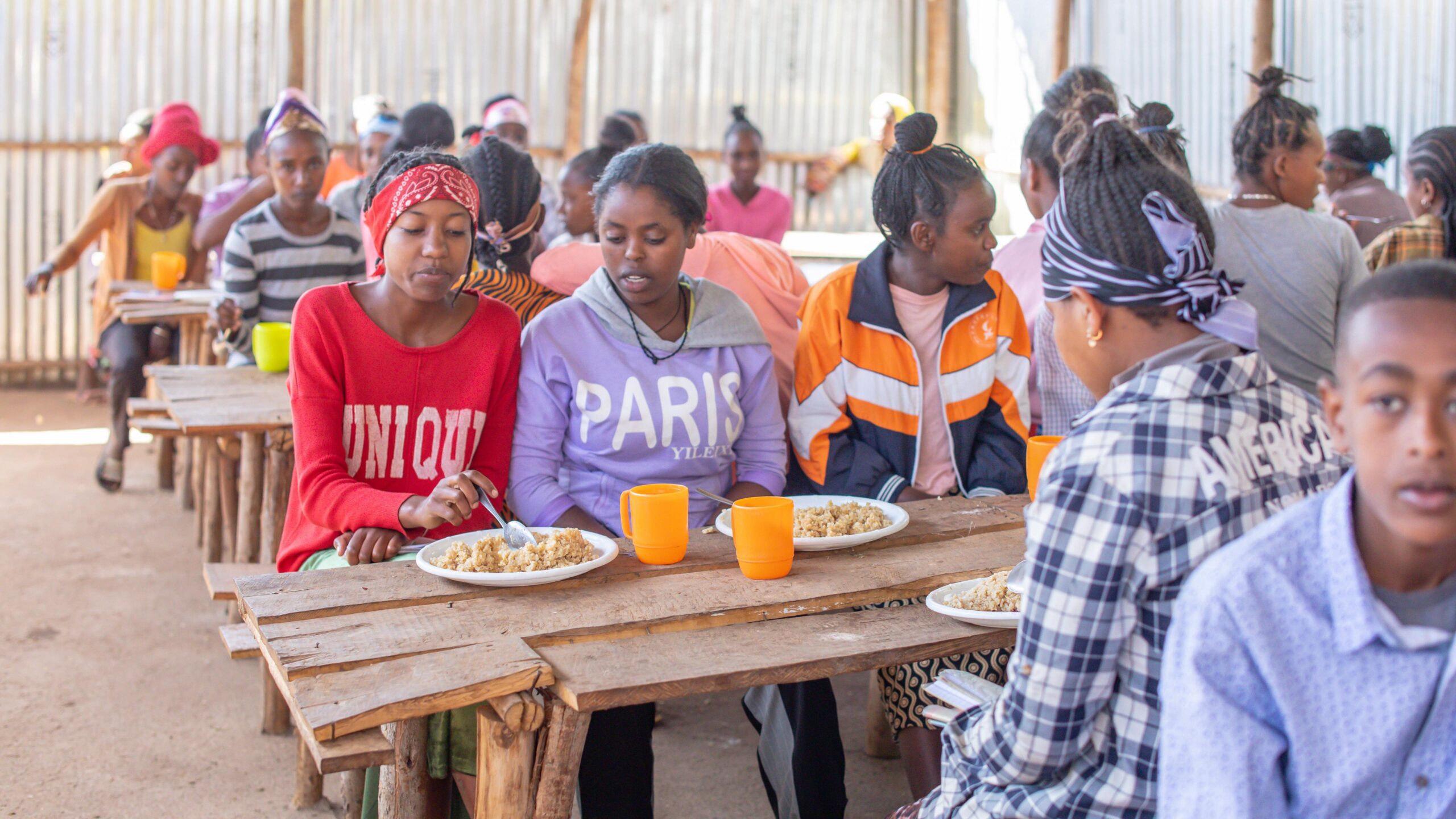In Nigeria, 45 percent of domestically produced food is lost due to spoilage, mostly because of the lack of cold storage facilities. As a result, the country’s 93 million small farmers often lose 25 percent or more of their annual income. At an IFPRI policy seminar Oct. 2, Nnaemeka C. Ikegwuonu, founder and CEO of ColdHubs, presented an innovative solution to help farmers in developing countries gain access to critical cold storage infrastructure to reduce food waste and improve incomes—and overall food security.
The ColdHubs initiative provides solar-powered, modular, walk-in cold rooms to markets with limited access to electricity and cold storage. The units, made from plastic crates, cost only 50 cents US each. Using them to store produce and other perishables saves producers and traders money—they don’t have to lower prices as days pass and their products lose quality and go bad. The units typically extend the shelf life of perishable items from 2 days to 21.
The initiative, Ikegwuonu said, “gives farmers, retailers, and wholesalers more opportunity to haggle on prices and sell when they are comfortable with the price.”
Since its inception in 2016 in Nigeria, ColdHubs has saved 5,722 tons of food from spoilage, doubled the monthly income for 320 farmers, retailers, and wholesalers, and created jobs for women. The success of the program has attracted attention in other countries and regions as well, and Ikegwuonu hopes to expand beyond Nigeria in the coming years.
Can the ColdHubs model scale? Is it sustainable? To achieve broader distribution, panelist Richard Tracy of the Global Cold Chain Alliance emphasized the need for more government support for cold chain initiatives through improved infrastructure, better food safety regulations, and the removal of tariffs and taxes on imported equipment. “Fifty percent of the problem is the infrastructure,” he said. He also stressed that a strong entrepreneurial spirit among farmers and traders will lead people to see the value in cold storage facilities and be more willing to make the investment for their produce.
The promise of the ColdHubs model lies in its potential to improve the entire value chain, according to Gene Moses of the International Finance Corporation at the World Bank, “The strength of the chain is only as strong as the weakest link, and an opportunity like ColdHubs helps strengthen the farmer link,” he said. Improving the producers’ node of the value chain can then encourage actors in other nodes to invest in improved technologies and practices, improving the entire value chain. International investors such as the International Finance Corporation (IFC), will then be more likely to invest in scaling up the initiative.
ColdHubs should get further empirical evaluation focusing its implementation challenges and impacts on various populations (especially women) before efforts are made to scale it up, said Catherine Ragasa of IFPRI. “We have to do more documentation and systematic evaluation so we can properly weigh the benefits and the costs,” she said.
For example, recent research suggests that food losses may be greatest at the farm level, not the market level; if this is the case, it may be optimal to locate ColdHubs units closer to production areas before produce even reaches the marketplace. Ragasa also said that ColdHubs’ solar power technology has the potential to help address food safety concerns beyond food spoilage; for instance, it might be adapted to produce clean water in marketplaces.
Paul Dorosh of IFPRI addressed the question of why cold storage facilities such as ColdHubs units are not more widely used in developing regions. IFPRI experience in India, Uganda, and Ethiopia shows that major constraints include lack of access to foreign exchange, lack of import licenses, and lack of access to capital, he said. Meanwhile, stability and government transparency are crucial to encouraging investment in cold storage initiatives. “If you’re going to make an investment, you need some kind of stability—stability in the exchange rate, in your access to credit, and in local policies to support private investment,” Dorosh said. “Nigeria’s experience with ColdHubs is encouraging, but to scale up, these other conditions need to be met as well.”
Sara Gustafson is a Communications Specialist with IFPRI’s Markets, Trade and Institutions Division.







